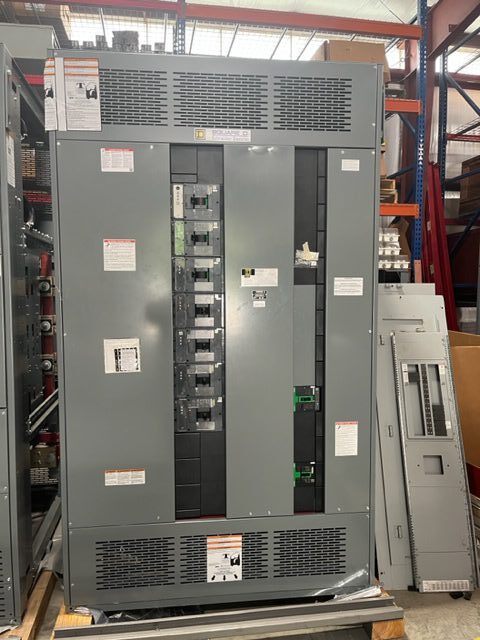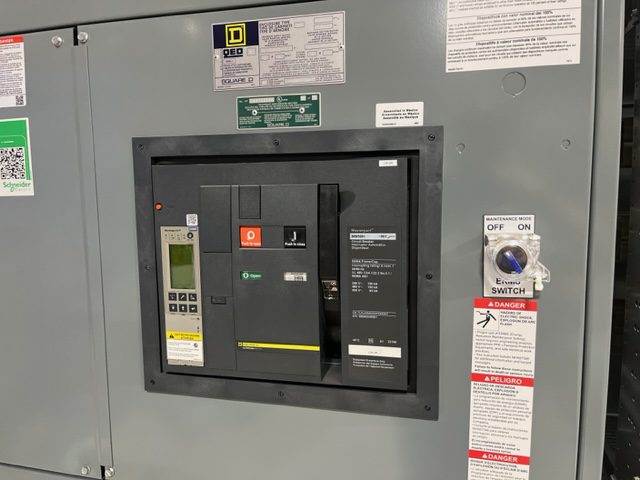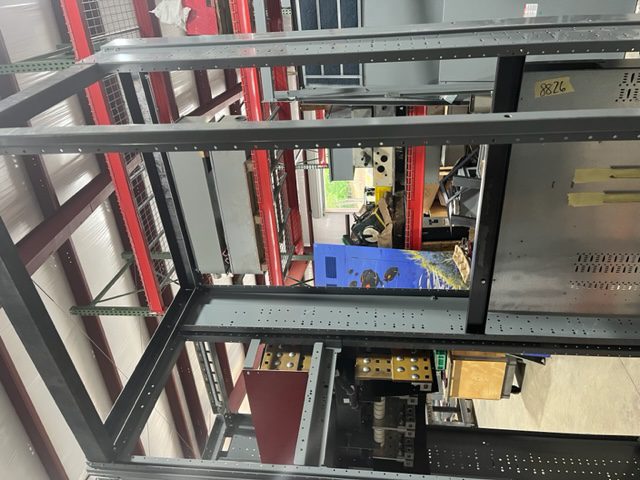Standard & Custom Electrical Panels & Switchgear — Fast, Durable, Built to Spec
Safeguard your systems and operations with durable, compliant panels – delivered quickly worldwide.
Electrical panels play a critical role in safeguarding electrical components from environmental hazards, unauthorized access, and physical damage. Whether used in industrial manufacturing, commercial buildings, or outdoor installations, these panels help protect circuits, enhance safety, and ensure compliance with industry standards.
At Electrical Power & Control, we engineer and build fully customized electrical panels tailored to your specific project needs.
Whether you’re powering an industrial process, distributing power across a plant, or integrating automation systems, our panels come fully assembled with the breakers, disconnects, control components, wiring, and labeling required for fast installation and safe operation.
Every panel is designed for real-world conditions. From simple breaker panels to complex control systems, we build for performance, compliance, and longevity.
From breaker panels to switchgear, selecting the right enclosure can prevent costly downtime, ensure operational efficiency, and extend the lifespan of electrical systems. But with so many options available, how do you determine the best fit for your needs?
Whether you’re sourcing a standard panel box or need a custom panel fabricated for a harsh industrial environment, EPC delivers panels that meet your exact needs—quickly and reliably.
Our electrical panels are trusted by electrical contractors, OEMs, facility managers, and system integrators across the U.S.
✅ Custom Sizes, Mounting, and Controls
✅ Fast Turnaround on Custom Builds
✅ Weatherproof, Dustproof, and Hazard-Rated Enclosures
✅ Expert Guidance on Compliance and Compatibility
As an electrical supplier with 25+ years of experience, EPC knows what’s at stake. We provide both off-the-shelf enclosures and custom builds with the urgency and accuracy today’s projects demand.
Types of Electrical Panels We Build
We offer:
- Breaker Panels (Main and sub-panels, up to 4000A)
- Control Panels (PLC-based, motor control, automation-ready)
- Power Distribution Panels (for construction sites, industrial zones, and temporary power)
- Transfer Switch & Generator Panels
- Custom Multi-Section Assemblies
- Transformer Integration Panels
All panels are also available in outdoor-ready enclosures—but what sets EPC apart is what’s inside. You get a complete, pre-wired solution, not just a metal box.
Choosing the right electrical enclosure is essential for ensuring safety, compliance, and long-term performance. Depending on the environment and application, different types of enclosures offer varying levels of protection. Below, we explore some of the most common enclosure types and their specific functions.
Breaker Panels: Protecting and Distributing Power
A breaker panel, also known as a distribution board, serves as the central hub for electrical circuits within a facility. It houses circuit breakers that control and protect different electrical loads.
✔ Key Features:
- Prevents electrical overloads and short circuits.
- Distributes power efficiently across different sections of a building or facility.
- Essential for residential, commercial, and industrial applications.
Common Applications:
- Industrial manufacturing plants.
- Office buildings and warehouses.
- Commercial spaces require multiple circuit distributions.

Choosing the Right Panel
Selecting the best electrical panel for your needs goes beyond just choosing a box to house electrical components. Various factors impact safety, efficiency, and longevity, making it essential to consider key elements before making a decision.
Key Factors to Consider When Choosing an Electrical Panel
Material Selection: Durability and Protection
- Stainless Steel: Corrosion-resistant, ideal for harsh environments such as food processing plants and outdoor installations.
- Aluminum: Lightweight and rust-resistant, often used in commercial and industrial settings.
- Polycarbonate & ABS Plastic: Cost-effective options for non-hazardous indoor applications.
Application-Specific Considerations
- -For Industrial Manufacturing Facilities: Look for high NEMA ratings (4X or 12) to protect against heavy dust and moisture.
- For Commercial Buildings: Standard breaker panels (NEMA 1 or 3R) may be sufficient.
For Outdoor Equipment: Choose weatherproof enclosures (NEMA 3R, 4X) to prevent electrical failures.



Avoiding Common Mistakes When Selecting a Panel
- Underestimating Environmental Factors – Failing to consider dust, moisture, or chemical exposure can lead to premature panel failure.
- Ignoring Compliance Standards – Ensuring your enclosure meets UL, NEMA, and OSHA regulations is crucial for workplace safety.
At Electrical Power & Control, we specialize in providing high-quality electrical panels designed for industrial manufacturers, facility managers, electrical contractors, and system integrators
Why Choose Electrical Power & Control for Your Next Panel Project?
We ensure that all our panels meet or exceed NEMA, IP, OSHA, and NEC standards to provide the highest level of safety and durability.
- Certified Panels – Fully compliant with industry regulations for peace of mind.
- Custom Solutions – Tailored panels to meet unique environmental challenges.
- Expert Guidance – Our team ensures you select the right panel for your specific compliance needs.
Regardless of the industry, Electrical Power & Control also offers reliable, high-quality panels tailored to your needs.
- Industry Expertise – 25+ years of experience in industrial and commercial electrical solutions
- Custom-Built Options – We design and deliver expedited panels to meet unique project requirements
- Fast and Reliable Service – We prioritize quick lead times to ensure minimal downtime